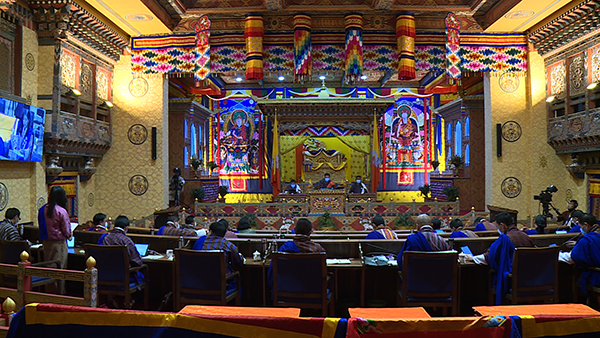 With an increasing number of people seeking treatment for mental health disorders, there is a shortage of psychiatrists in the country. The Social and Cultural Affairs Committee of the National Council raised this concern. As per the committee’s report, there are only four psychiatrists in the country. Of it, only one is a full-time psychiatrist with the national referral hospital. Two retired on superannuation and one is attached with the Royal Bhutan Army. Therefore, the committee called for the need for additional training at all levels to manage mental disorders.
With an increasing number of people seeking treatment for mental health disorders, there is a shortage of psychiatrists in the country. The Social and Cultural Affairs Committee of the National Council raised this concern. As per the committee’s report, there are only four psychiatrists in the country. Of it, only one is a full-time psychiatrist with the national referral hospital. Two retired on superannuation and one is attached with the Royal Bhutan Army. Therefore, the committee called for the need for additional training at all levels to manage mental disorders.
To address the shortage, currently, the health ministry is training four clinical counsellors at the Khesar Gyalpo University of Medical Sciences of Bhutan (KGUMSB).
“With barely a handful of professional psychiatrists in the country, Bhutan does not even meet the requirement of 1 psychiatrist for every 100,000 people. Until an adequate number of psychiatrists is available, general duty medical officers and health assistants should continue to be trained in diagnosing and managing common mental health disorders. There is a need for additional mental health training at all levels,” said Lhaki Dolma, Vice-chairperson of the Social and Cultural Affairs Committee.
“We have to look at increasing the number of the psychiatrist in the country. We only have one psychiatrist in the national referral hospital. There aren’t any professional psychiatrists in the district hospitals,” added Dhan Kumar Sunwar, Tsirang’s MP.
According to the committee’s report, only 1% of the health ministry’s annual budget is allocated for mental health programs including suicide prevention. Over the last five years, the budget allocation has remained under Nu 3.5 M despite the increasing number of patients seeking treatment for mental health.
“In other countries, there are various solutions and treatments for the different types of mental health issues. For instance, attention-deficit hyperactivity disorder is a mental disorder where a person loses interest in day-to-day activities and get hyperactive in other unusual circumstances. It is a student who is diagnosed with such kind of mental health issue, the student is given extra time during exams. Likewise, if we can come up with different solutions to every disorder in our country it would be really helpful,” said Nima, Bumthang’s MP.
Amid the pandemic, the National COVID-19 Mental Health Program Response Team received more than 1500 calls from between April 2020 and April 2021 of which 938 calls were related to mental disorders.
As per records maintained by the health ministry between 2015 and 2019, the most common form of mental health disorders is anxiety followed by mental disorders due to alcohol use and depression.
Kinzang Lhadon/ Kelzang Choden






